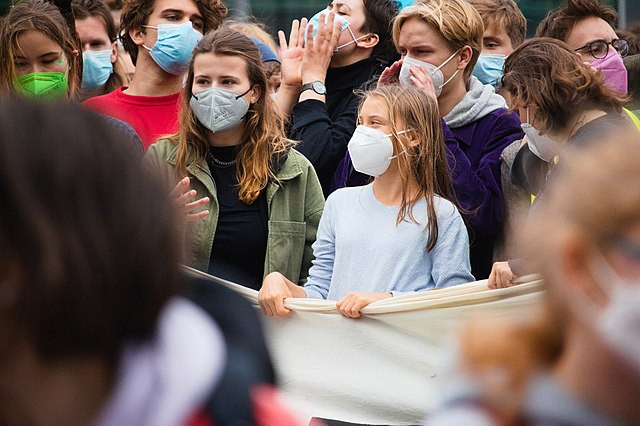The European Court of Human Rights (ECHR) based in Strasbourg, France, declared that Switzerland's lax approach to combating climate change constitutes a breach of human rights. This ruling emanated from a case brought forward by over 2,000 Swiss women, predominantly aged in their 70s, who contended that the increasing heatwaves exacerbated by climate change are detrimental to their health and jeopardize their lives.
The ECHR pinpointed significant deficiencies in Switzerland's climate policies, highlighting the nation's failure to adhere to its own emission reduction targets as a fundamental human rights violation. This landmark decision, which is legally binding and without the possibility of appeal, marks a pivotal moment in climate litigation, potentially setting a new legal precedent for future cases worldwide.
"This judgment sends a clear message: governments must take definitive action on emissions to safeguard the human rights of their citizens," stated Vesselina Newman from ClientEarth, emphasizing the global implications of this ruling. Gerry Liston, a legal expert at the Global Legal Action Network, hailed the decision as a historic precedent that mandates all European countries to recalibrate their climate targets in alignment with scientific recommendations and the 1.5 degrees Celsius threshold.
The judgment could catalyze Switzerland to expedite its transition away from fossil fuels, the primary drivers of anthropogenic climate change. While the Swiss Federal Office of Justice acknowledged the court's verdict, it stated that a thorough analysis would be undertaken to determine the requisite future measures for compliance.
Environmental activists, including Greta Thunberg who was present at a demonstration outside the court, see this as the dawn of a new era in climate litigation. "This is only the beginning," Thunberg asserted, underscoring the growing momentum of legal challenges against governmental inaction on climate change.
In contrast, the ECHR deemed two other related claims inadmissible. One was from a municipal mayor against the French government, and the other, brought by six Portuguese youths against 32 European nations, was dismissed due to the claimants not exhausting all legal avenues in their home country first.
Despite these setbacks, the victory in the Swiss case is celebrated as a collective triumph. "We didn't break the wall but we've made a huge crack," said Catarina dos Santos Mota, one of the Portuguese claimants, viewing the Swiss win as a beacon of hope for climate justice across Europe and beyond.
The ECHR's decision underscores the intersection of climate change and human rights, presenting a novel legal avenue for environmental activism. The court's affirmation that government inaction on climate change can violate fundamental human rights has wide-ranging implications, potentially opening the door to a slew of national court cases across the 46 Council of Europe member states.
Legal experts and environmental activists alike anticipate that this ruling will influence climate action and litigation not just in Europe, but globally. As the climate crisis intensifies, the judicial system is increasingly being recognized as a crucial battleground for enforcing governmental accountability and catalyzing significant policy shifts towards sustainability and environmental protection.




